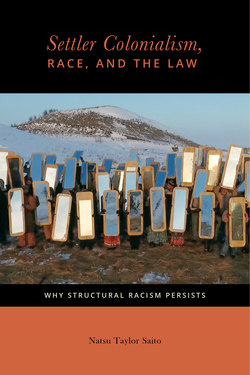Читать книгу Settler Colonialism, Race, and the Law - Natsu Taylor Saito - Страница 9
На сайте Литреса книга снята с продажи.
1 Racial Realities
Оглавление“Racial Realism” . . . enables us to avoid despair, and frees us to imagine and implement racial strategies that can bring fulfillment and even triumph.
—Derrick Bell
Racial justice has been both elusive and contested throughout the history of the United States. In the wake of World War II, as decolonization movements swept across Africa and Asia, the civil rights movement gained momentum and powerful grassroots organizations emerged advocating community control and self-determination. It was a period of tremendous hope and energy, but over the next several decades, the formal recognition of racial equality achieved during the 1960s had little discernible impact on the material conditions of life confronted by most people of color in the United States.1 This led the late law professor Derrick A. Bell Jr. to observe that “even those herculean efforts we hail as successful will produce no more than temporary ‘peaks of progress,’ short-lived victories that slide into irrelevance as racial patterns adapt in ways that maintain white dominance.”2 In the early twenty-first century we have seen a resurgence of popular actions to combat racism and to promote many other forms of social justice. Will these mobilizations develop into movements that bring about fundamental, structural change or will they, too, soon “slide into irrelevance”?
According to Bell, only by acknowledging the persistence and adaptability of racism—an approach he termed racial realism—will we be able envision strategies capable of bringing about meaningful structural change and perhaps even liberation.3 This book is about imagining and implementing such strategies. As a precursor to doing so, I believe we need to acknowledge that, despite the elimination of legally mandated apartheid, racial disparities have not changed significantly over the past fifty years. At the same time, we will need to recapture the energy of movements with liberatory visions, mindful of the ways in which struggles for racial justice have been both repressed and diverted throughout US history. These themes are explored in this chapter, which lays the groundwork for reframing the narrative of race in America—the specific histories and lived realities of communities of color—to incorporate the functions served by racialization.
